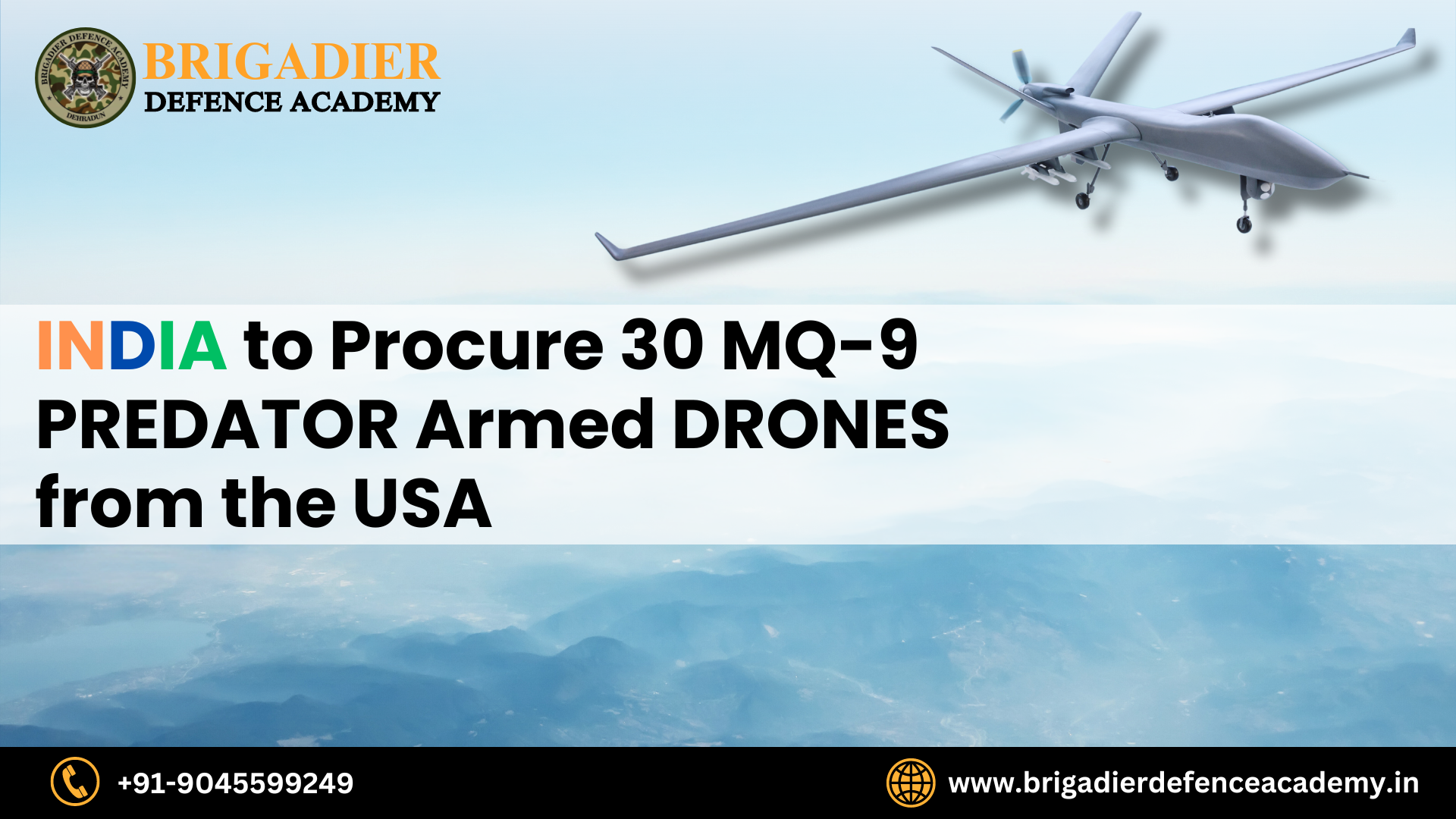India to procure 30 MQ-9 Predator Armed drones from the US
in a significant development bolstering its defense capabilities, India has initiated plans to procure 30 MQ-9 Predator armed drones from the United States. This procurement marks a pivotal moment in India’s defense strategy, signaling its intent to modernize and enhance its aerial capabilities. The MQ-9 Predator, renowned for its versatility and combat effectiveness, promises to augment India’s defense arsenal, enabling it to address evolving security challenges effectively.
The decision to acquire MQ-9 Predator armed drones
India’s strategic vision to adapt to the changing dynamics of modern warfare. As the global security landscape continues to evolve, armed drones have emerged as indispensable assets for intelligence gathering, surveillance, and precision strikes. India’s move to acquire these drones reflects a proactive approach to safeguarding its national interests and securing its borders in an increasingly complex geopolitical environment.
The MQ-9 Predator, manufactured by General Atomics Aeronautical Systems, Inc., is renowned for its long-endurance capabilities, advanced surveillance systems, and precision strike capabilities. Equipped with state-of-the-art sensors and communication systems, these drones can operate in contested airspace, providing real-time situational awareness and target acquisition. Additionally, the MQ-9’s ability to carry a variety of weapons payloads enables it to conduct precise and effective strikes against high-value targets with minimal collateral damage.
One of the primary motivations behind India’s decision to procure MQ-9 Predator drones is the need to counter emerging security threats, including cross-border terrorism and asymmetric warfare. The drones’ ability to conduct persistent surveillance along India’s borders and across strategically sensitive regions will significantly enhance the country’s ability to monitor and deter potential threats. Moreover, the drones’ precision strike capabilities will enable Indian security forces to neutralize threats swiftly and decisively, enhancing deterrence and response capabilities.
the acquisition of MQ-9 Predator armed drones
italigns with India’s broader defense modernization efforts and its commitment to building a technologically advanced military. As part of its “Make in India” initiative, India has been striving to enhance its indigenous defense manufacturing capabilities while also leveraging strategic partnerships with leading global defense suppliers. The procurement of MQ-9 Predator drones represents a strategic collaboration between India and the United States, further strengthening bilateral defense ties and fostering technology transfer and cooperation.
The introduction of MQ-9 Predator drones into India’s defense arsenal is expected to have far-reaching implications for its military capabilities and operational doctrine. These drones will provide Indian security forces with a decisive edge in conducting precision strikes against enemy targets, disrupting hostile activities, and safeguarding national interests. Moreover, the drones’ ability to gather real-time intelligence and conduct reconnaissance missions will enhance India’s situational awareness and operational effectiveness across diverse theaters of operation.
However, India’s decision to acquire armed drones also raises important questions regarding the ethical and legal implications of their use, particularly in the context of targeted killings and collateral damage. As unmanned aerial vehicles (UAVs) become increasingly integrated into military operations, there is a growing need for clear guidelines and protocols governing their use to ensure compliance with international humanitarian law and respect for human rights. India must prioritize transparency, accountability, and adherence to legal frameworks in its deployment and utilization of MQ-9 Predator drones to mitigate the risk of unintended consequences and civilian casualties.
In conclusion, India’s procurement of 30 MQ-9 Predator armed drones from the United States represents a significant milestone in its quest for enhanced defense capabilities and operational readiness. These drones, equipped with advanced surveillance and precision strike capabilities, will play a crucial role in safeguarding India’s national security interests, countering emerging threats, and bolstering its defense posture. However, as India integrates armed drones into its military arsenal, it must also prioritize ethical considerations, legal compliance, and transparency to ensure responsible and effective utilization of this transformative technology in safeguarding peace and stability in the region and beyond.







